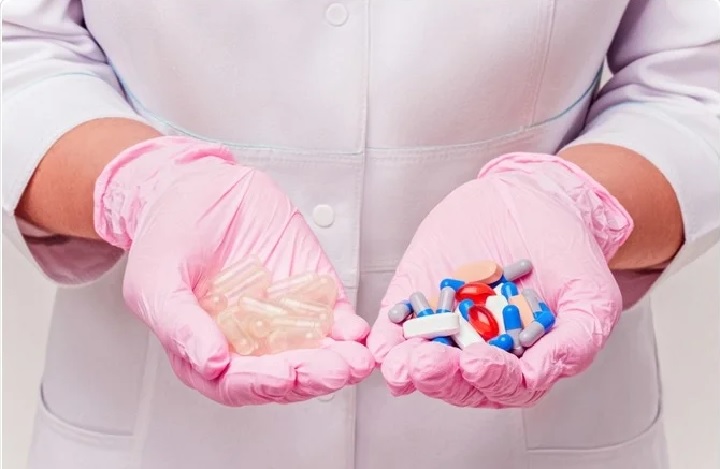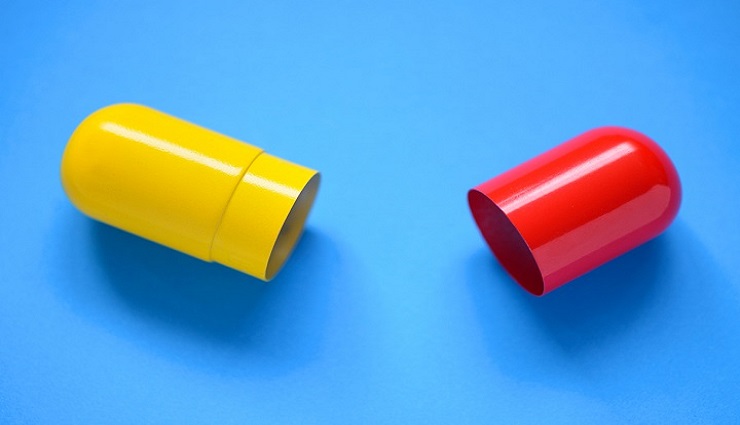Sometimes the mind can trick us so that a fake drug affects our health. This fake medicine is called a placebo. In some cases, placebos may have the same effect as natural drugs. In the following, we will learn about placebo and its uses in medicine and examine the reasons for its effectiveness.
What is a placebo?
A placebo is an ineffective substance that resembles the intended drug or treatment. In medicine, placebos are tablets (sugar pills), injectable liquids (saline solution), or oral liquids. The common feature of all placebos is that they do not have an active ingredient that affects a person’s health.
A person usually does not know that his medicine is a placebo and thinks he has received the natural treatment. A placebo is designed to look exactly like the drug, while its substance does not affect the person’s disease.
What is the placebo effect?
Sometimes people react positively or negatively to a placebo. For example, the symptoms of their disease improve, or they experience symptoms such as side effects of the medicine. These reactions are called the “placebo effect” or “placebo effect.”
In some situations, placebos also affect people who know that drugs are unnatural. According to research, placebos may involve the following:
- depression ;
- the pain;
- sleep disorders ;
- irritable bowel syndrome ;
- Menopause.
In a study on asthma, people who used an inhaled placebo did not perform better on breathing tests than when they did not use the drug. However, when the researchers asked them how they felt, it was found that the inhaled placebo was just as effective at relieving their symptoms as the actual drug.
“Placebo” and “placebo effect” are different. A placebo is an inactive substance instead of a natural drug, while a placebo effect is any effect caused by taking a fake or placebo medication.
What is the Nocebo Effect?
Some people have more symptoms or side effects in response to a placebo. Sometimes this reaction or response is called the “nocebo effect.” For example, the patient may experience headaches, nausea, or dizziness after taking the medicine.
Placebo uses
Usually, doctors and scientists in medical and psychological research use a placebo to help discover and understand new drugs’ physiological and psychological effects. In this way, they can check the effectiveness of new drugs and their side effects.
1. Medical research
In medical research, random volunteers are divided into experimental and control groups. The experimental group receives the new drug, and the control group receives a placebo. Comparing the results of the two groups shows whether the changes observed in the experimental group were caused by the medication or by chance. The new drug was adequate if the volunteers receiving the actual drug improved significantly compared to the placebo group.
By conducting experiments, scientists determine whether new drugs or treatments are effective or work better than current drugs and medicines. Through research, they find:
- What are the side effects of new medications;
- Which patients benefit the most from drugs;
- Are the potential benefits of the drug worth the potential risks?
By comparing the effects of the drug with a placebo, the researchers hope to find out whether the observed effects are due to the drug itself or another variable.
2. Psychological tests
A placebo is an inert drug or substance with no known effect in psychological experiments. Researchers can use a control group exposed to a placebo or fake independent variable. Then compare the impaplacebo product with the experimental group’s results.
Researchers have found that although placebos do not contain natural drugs, they can have various physical and psychological effects. Members of the placebo groups showed changes in heart rate, blood pressure, anxiety, pain perception, fatigue, and even brain activity. These effects show the brain’s role in health and well-being.
What can be learned from placebos?

Multiple clinical trials have shown that experimental and placebo groups are equally important. For example, according to preliminary research, the herbal supplement Ginkgo Biloba can effectively delay dementia. The American National Institute of Health (NIH) also sponsored a 6-year phase 3 clinical trial to investigate this issue, in which more than 3,000 volunteers aged 75 years or older participated. At the end of the trial, the scientists reported that they saw no significant difference in the effect of ginkgo biloba or placebo on dementia.
This result was disappointing, but the scientists were able to obtain a lot of information for future research. For example, researchers learned more about subgroups of participants at higher risk of developing dementia and the possible effects of ginkgo biloba on cardiovascular disease, cancer, depression, and other age-related diseases. They also learned about the design and implementation of extensive trials of dementia prevention in older adults.
Based on the results of this trial and other trials of Alzheimer’s patients, scientists began testing drugs on people in the early stages of the disease: those with brain changes associated with Alzheimer’s but did not have memory problems or other symptoms. Many researchers think treatment in the early stages of the disease can effectively prevent or delay dementia.
Reasons for the placebo Effect
Although researchers know that the placebo effect is natural, they still don’t know precisely how and why it occurs. Various factors may cause this phenomenon, some of which we have examined below.
1. Hormonal response
A possible explanation is that taking a placebo causes the release of endorphins. Endorphins have a structure similar to morphine and other narcotic pain relievers and are considered the brain’s natural pain relievers.
Researchers have shown the placebo effect using brain scans. In these scans, the regions with opiate receptors were active in both placebo and drug groups. Naloxone is an opioid antagonist that is used to block the effects of opiates. Naloxone blocks both natural endorphins and narcotic drugs. After receiving naloxone, placebo-induced pain relief was also reduced.
2. Conditioning
Another explanation is “classical conditioning,” or the association you make between 2 stimuli that result in a learned response. In some cases, a placebo can act like an actual drug. For example, if you regularly use an arthritis pill to relieve joint stiffness and pain, you may make a connection between the medicine and pain relief. If you’re given a placebo that looks like your arthritis pill, you’ll probably still think it’s a pain relief because you’ve been conditioned.
3. Individual expectations
According to one of the most common theories, the placebo effect is caused by a person’s expectations. If a person expects a pill to do something, their body chemistry can produce results similar to the drugs. (Body chemistry is all the processes that occur in the human body.)
For example, in research, volunteers were given a placebo and were told that the placebo was a stimulant. After taking the pill, their heart rate, blood pressure, and reaction speed increased. When volunteers were given the same medication and told it would help them sleep, they experienced the opposite effects.
People who are strongly motivated and expect the drug to work are likelier to experience the placebo effect. The prescribing doctor’s enthusiasm can also affect how the patient’s body reacts. If the doctor seems very optimistic about the drug’s development, the patient will be more likely to see the benefits of the drug.
4. Genetics
Genes can also affect how people respond to placebo drugs. Some people are genetically predisposed to respond more to placebos.
Benefits of using a placebo
The main advantage of using a placebo to evaluate the effect of new drugs is that it weakens or eliminates the effect that expectations may have on the outcome. If researchers expect a particular result, they may unwittingly give research participants clues about how they should behave. This can affect the results of the research.
To minimize this issue, researchers sometimes use the double-masked study method. In this method, neither the research participants nor the researchers know who will receive the placebo and the actual drug. Researchers can better examine drug and placebo effects by minimizing the potential for these subtle biases to affect research.
final word
Placebos can significantly affect a person’s emotions, but they do not treat the underlying disease. In real life, doctors cannot use placebos without informing their patients because it is unethical. This problem reduces or eliminates the placebo effect. However, researchers can use a placebo without informing the participants to check new drugs’ effectiveness and safety.
Warning! This article is only for educational purposes; to use it, it is necessary to consult a doctor or specialist.



